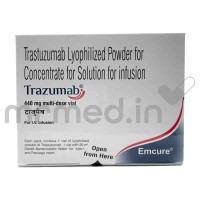Nidaglan 8% Gel contains the active component Progesterone. It is a hormone that plays a vital role in the female reproductive system and menstrual cycle. It is produced mainly by the ovaries after ovulation, but the placenta can also produce it during pregnancy and in smaller amounts by the adrenal glands. Nidaglan 8% Gel is a synthetic form of Progesterone prescribed for various medical purposes. These medications are designed to mimic the natural effect. It is commonly used in hormone replacement therapy for menopausal women or to regulate the menstrual cycle in cases of irregular periods.
Individuals who have a known allergy or hypersensitivity to it or any of its components should avoid this medication. It may not be recommended for individuals with certain medical conditions, such as liver disease, certain types of cancer (e.g., breast cancer, liver cancer), a history of blood clotting disorders, or undiagnosed vaginal bleeding. These conditions can increase the risk of complications or may be exacerbated by Nidaglan 8% Gel. In some cases, individuals with certain hormonal imbalances, such as uncontrolled hyperthyroidism or poorly managed diabetes, may need careful monitoring or adjustment of their medication regimen.
Therapeutic Effects of Nidaglan 8% Gel
Pregnancy
This medicine is safe for pregnancy if prescribed by your doctor. It does not cause any harm to developing fetus.
Breast Feeding
Nidaglan 8% Gel may not be recommended while breastfeeding, as it can pass into breast milk and potentially affect the nursing infant.
Lungs
If you have pre-existing lung conditions or respiratory issues, it's important to inform your healthcare provider before taking Nidaglan 8% Gel.
Liver
Nidaglan 8% Gel is generally used cautiously in individuals with liver impairment or liver disease. The medication is metabolized in the liver, and impaired liver function can affect the metabolism and clearance of this medication from the body.
Alcohol
Combining Nidaglan 8% Gel with alcohol is generally not recommended. Alcohol can increase the sedative effects of this medication and may enhance certain side effects, such as drowsiness, dizziness, and impaired coordination.
Driving
Nidaglan 8% Gels can cause side effects that may impair your ability to drive or operate machinery safely. Common side effects are drowsiness, dizziness, and vision changes. These effects can affect your coordination, reaction time, and judgment, making driving unsafe or performing tasks requiring alertness.
Serious:
- Allergic reaction
- Swelling
- Painful urination
- Vaginal bleeding
- Depression
- Memory loss
- Breast lumps
- Dark patches on skin
- Vomiting
- Blood clots
Common:
- Nausea
- Bloating
- Vaginal discharge
- Mood swings
- Frequent urination
- Tiredness
While Nidaglan 8% Gel is primarily associated with female reproductive health, it may also have uses in certain male conditions. Your healthcare professional can provide more information on cases where this medication may be prescribed for male patients.
While Nidaglan 8% Gel is commonly used in reproductive health contexts, emerging studies explore its potential therapeutic applications in various non-reproductive conditions such as neuroprotection, mood disorders, and cardiovascular health. However, the use of this medication for non-reproductive conditions is still being researched, and its efficacy and safety may vary.
Nidaglan 8% Gel can be used as a form of contraception. Discussing contraceptive options with your healthcare professional to determine the most suitable method for you is important.
Nidaglan 8% Gel is commonly used in fertility treatments, but its use in menopausal women for fertility purposes may vary. Depending on the specific circumstances and underlying causes of infertility, your healthcare professional can guide the potential role of this medication in your fertility treatment plan.
Nidaglan 8% Gel is often prescribed to support pregnancy and reduce the risk of miscarriage, particularly in cases of Progesterone deficiency or other factors impacting pregnancy viability. Your healthcare professional can evaluate your situation and determine if this medication is an appropriate intervention for preventing miscarriages.
Nidaglan 8% Gel, like any hormone therapy, can potentially impact mood and emotional well-being. While some individuals may experience mood changes or emotional fluctuations while using this medication, others may not. If you have concerns about the effects on your mood or emotional state, discussing them with your healthcare professional is important.
Common side effects of Nidaglan 8% Gel may include fatigue, dizziness, headache, breast tenderness or swelling, bloating, nausea, mood changes, and changes in menstrual bleeding patterns. These side effects are typically mild and transient, and not everyone experiences them.
Molecule name: Progesterone | Therapeutic class: Progestins |
Pharmacological class: Progestational agent
| Indications: 1. Gastroparesis 2. Nausea and vomiting 3. Gastroesophageal reflux disease (Acid reflux and heartburn) |









-200x200.jpg)